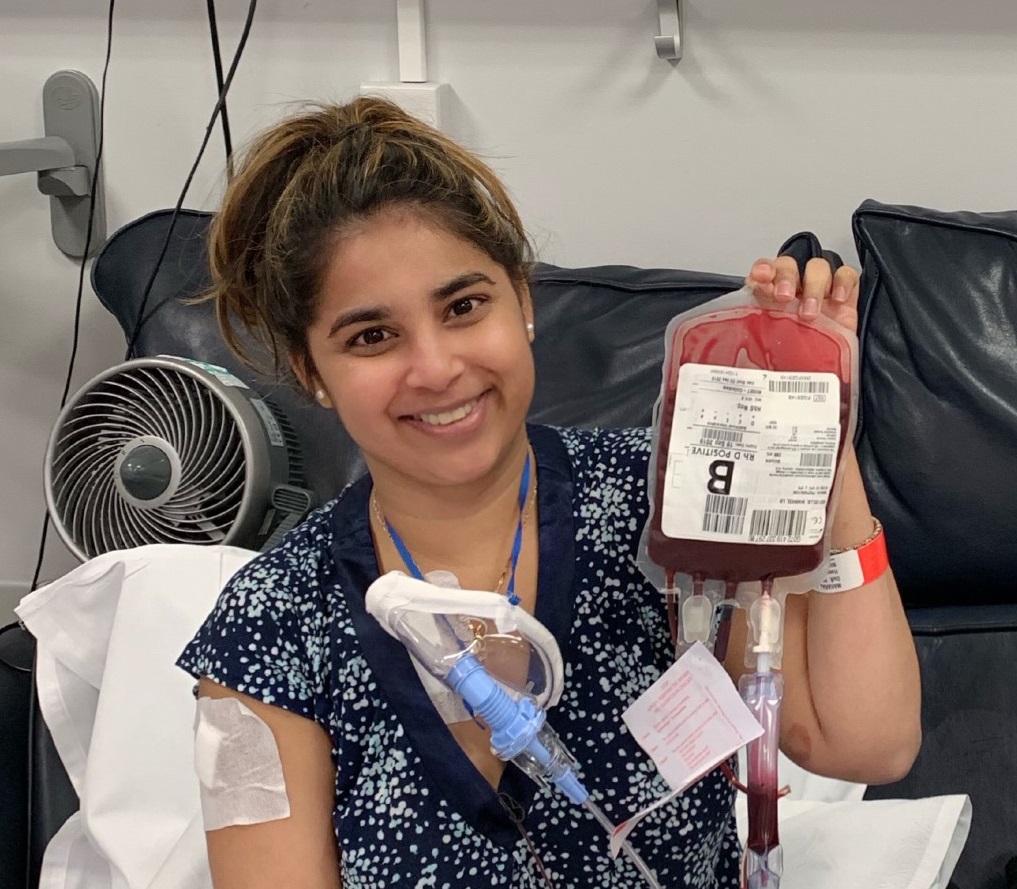Roanna’s thalassaemia story
Roanna needed 250 units of blood over two years as she battled thalassaemia.
Roanna Maharaj, 30, from Wood Green in London, needed blood from nearly 250 people over two years to stay alive.
Roanna has thalassaemia, a rare blood disorder that affects the production of haemoglobin.
She’s had blood transfusions all her life to help control her symptoms, but during her most severe spell she received more than 248 units of red blood cells.
 The haematologists who were treating her, said her blood requirements were the highest for any patient with thalassaemia in the UK.
The haematologists who were treating her, said her blood requirements were the highest for any patient with thalassaemia in the UK.
“My case was frequently discussed with leading thalassaemia and blood transfusion specialist haematologists in the UK and abroad,” Roanna said.
Her illness was so bad she virtually housebound.
“I was given a Zimmer frame to help me walk indoors. I remember being so exhausted and in so much pain I’d have to take a break during a shower and sit down.
“On some days it was even difficult to feed myself. I could only watch television, look back on my pictures, listen to music, and think back to happier times.”
Roanna said: “Blood donors are amazing. They are giving somebody like me a chance at life.
“A chance to experience things like graduations, marriage, children and everything between.
“The doctors have struggled to find matched blood for me before because there are not enough black and Asian donors.
“I hope that by sharing personal stories like mine it inspires more black and Asian people to donate.”
Start saving lives by giving blood. Sign up and book an appointment to get started.
About thalassaemia
Thalassaemia is a rare blood disorder that affects the production of haemoglobin.
People with thalassaemia produce either no or too little haemoglobin, which is used by red blood cells to carry oxygen around the body.
Thalassaemia can cause a number of health problems including anaemia, which can be treated with blood transfusions.
Thalassaemia is mainly found in people of Mediterranean, Middle Eastern, Asian and South East Asian heritage. Blood donors who share the same heritage are often a good match for people who need frequent transfusions, as they are more likely to have the same blood type.
